The Transformative Impact of CitySquare
Questions About CitySquare? Contact Us.
Call Kelleher & Sadowsky:
508-755-0707
CRE Market Insight: Downtown Worcester Development
August 2022
Take a walk in downtown Worcester and its surrounding neighborhoods, and you'll see vibrant, bustling areas that highlight the transformative impact of the $565 million CitySquare development project.
The success of the CitySquare project is being felt throughout these areas — and developers and companies are taking note. As such, developers are increasingly searching for investment opportunities in downtown Worcester and its surrounding neighborhoods. Meanwhile, companies looking to expand or relocate are more likely than ever before to consider these areas.
From a Failed Mall to Worcester's Centerpiece
CitySquare offers 2 million square feet of mixed-use space on 20 acres of land in downtown Worcester. Outside of Boston, CitySquare is the largest private-public partnership in Massachusetts history.
CitySquare's roots date back to the Worcester Galleria Mall, which was developed in the 1960s as part of Worcester's urban renewal. The mall remained intact for the next three-plus decades.
New England Development began shutting down the mall's existing stores but intended to revitalize the space. On Oct. 29, 1994, New England Development launched the Worcester Common Fashion Outlets.
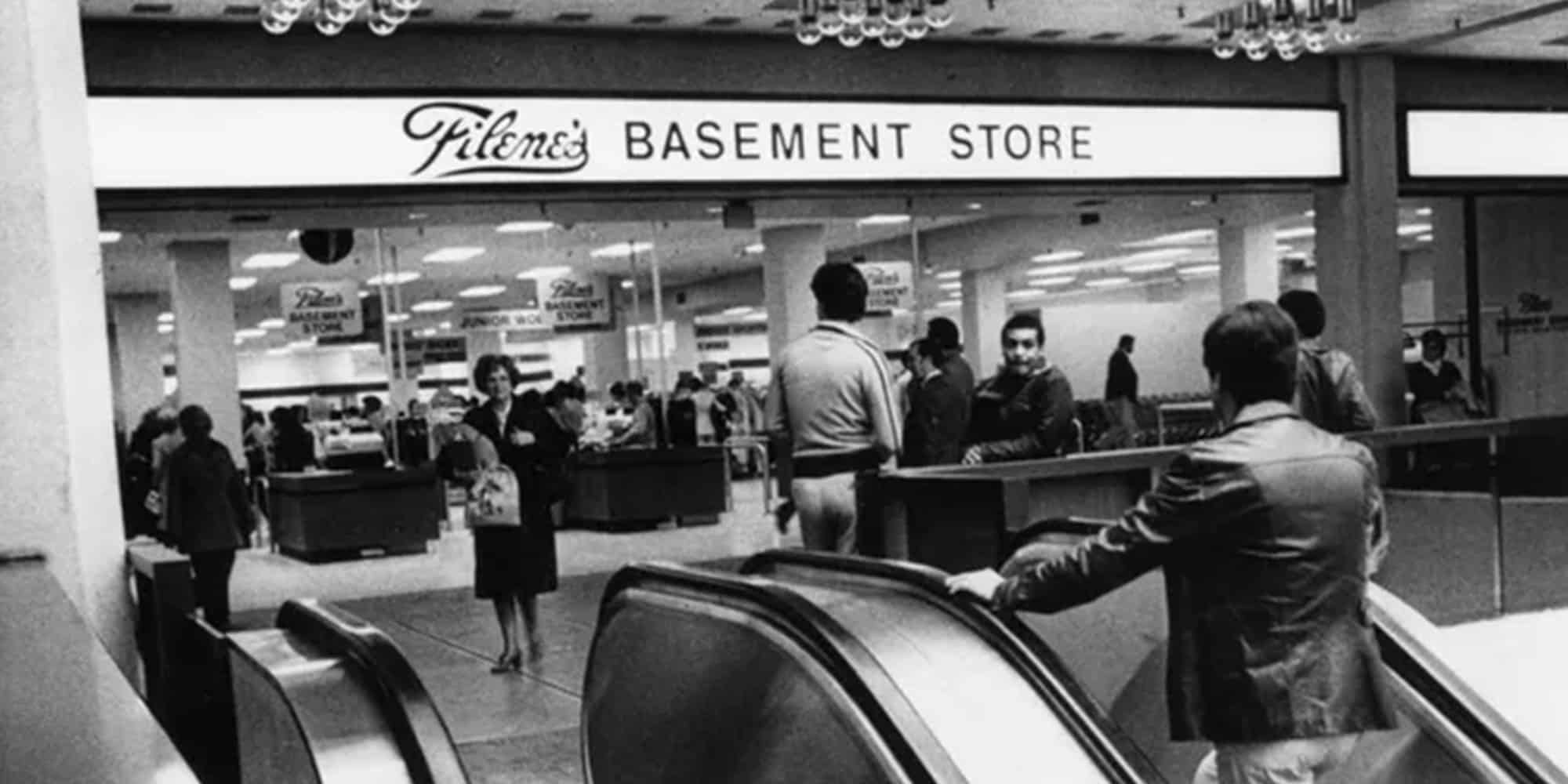
The Worcester Common Fashion Outlets featured 126 outlet stores, including:
- Sports Authority
- Saks Fifth Avenue
- Bed Bath and Beyond
- Filene's Basement
New England Development promoted the Worcester Common Fashion Outlets but with little success. In 1996, the Worcester Common Fashion Outlets were rebranded as the Worcester Common Outlets. However, the plan to revitalize the Worcester Galleria Mall space stalled.
In 1997, the Wrentham Village Premium Outlets opened just off nearby Interstate 495. This took away from the Worcester Common Outlets' customer base.
As the Wrentham Village Premium Outlets grew, the Worcester Common Outlets struggled. In 1999, architect Daniel R. Benoit suggested tearing down the failed Worcester Common Outlets and replacing it with a new street grid and development parcels. New public streets and related infrastructure could be used for multiple private development opportunities. Plus, they could improve neighborhood connectivity and make Worcester more walkable.
The Worcester Common Outlets closed in April 2006. At this time, Berkeley Investments, which owned the property, demolished portions of the mall. It also began construction of a mixed-use development for retail, housing, and office space that would ultimately become CitySquare.
Worcester city officials approved the first phase of the CitySquare project in May 2008. Opus investment Management, the investment management arm of Hanover Insurance, and developer Leggat McCall Properties began reviewing the plan for the Worcester Common Outlets space in 2009. They looked for ways to improve the project's viability and partnered with the City of Worcester and the existing property owner to subdivide the site.
In March 2009, Unum Group announced plans to lease more than 175,000 square feet in the CitySquare development. This led to $25 million in state demolition funding for the project.
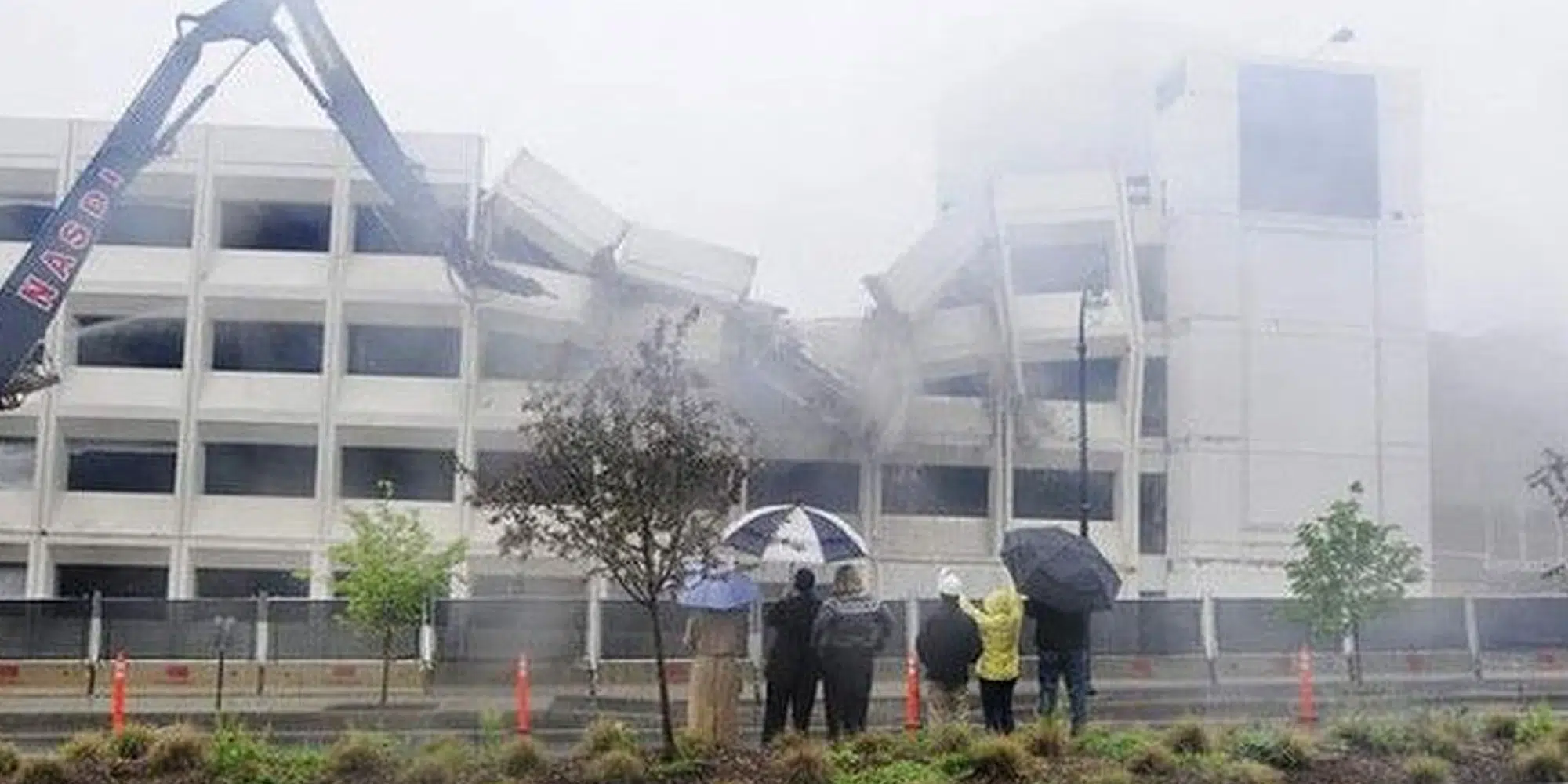
Demolition of the Worcester Common Outlets got underway in 2010. An 800,000-square-foot mall structure and 2,300 parking spaces were demolished. This created 12 acres of land for new development.
Over the next few years, the site was further subdivided. Steps were also taken to speed up the site plan approval process for each subdivision project. This helped accelerate the development of CitySquare.
The CitySquare project has been ongoing for more than 10 years — and it's already created many growth opportunities for developers and companies in downtown Worcester and its surrounding areas.
What CitySquare Looks Like Today
Mercantile Center
At the heart of CitySquare lies Mercantile Center, which was spearheaded by developer Chip Norton of Franklin Realty Advisors. Franklin Realty Advisors acquired the property for Mercantile Center, and since that time, has:
- Fully renovated and leased 150,00 square feet of space, including 92,300 square feet of space leased to UMass Memorial Health Care.
- Completed building façade improvements and renovated the lobbies of both buildings.
- Invested over $5 million in capital repairs in the Mercantile Center Garage.
- Made Mercantile Center's plaza and atrium more accessible to tenants and community members.
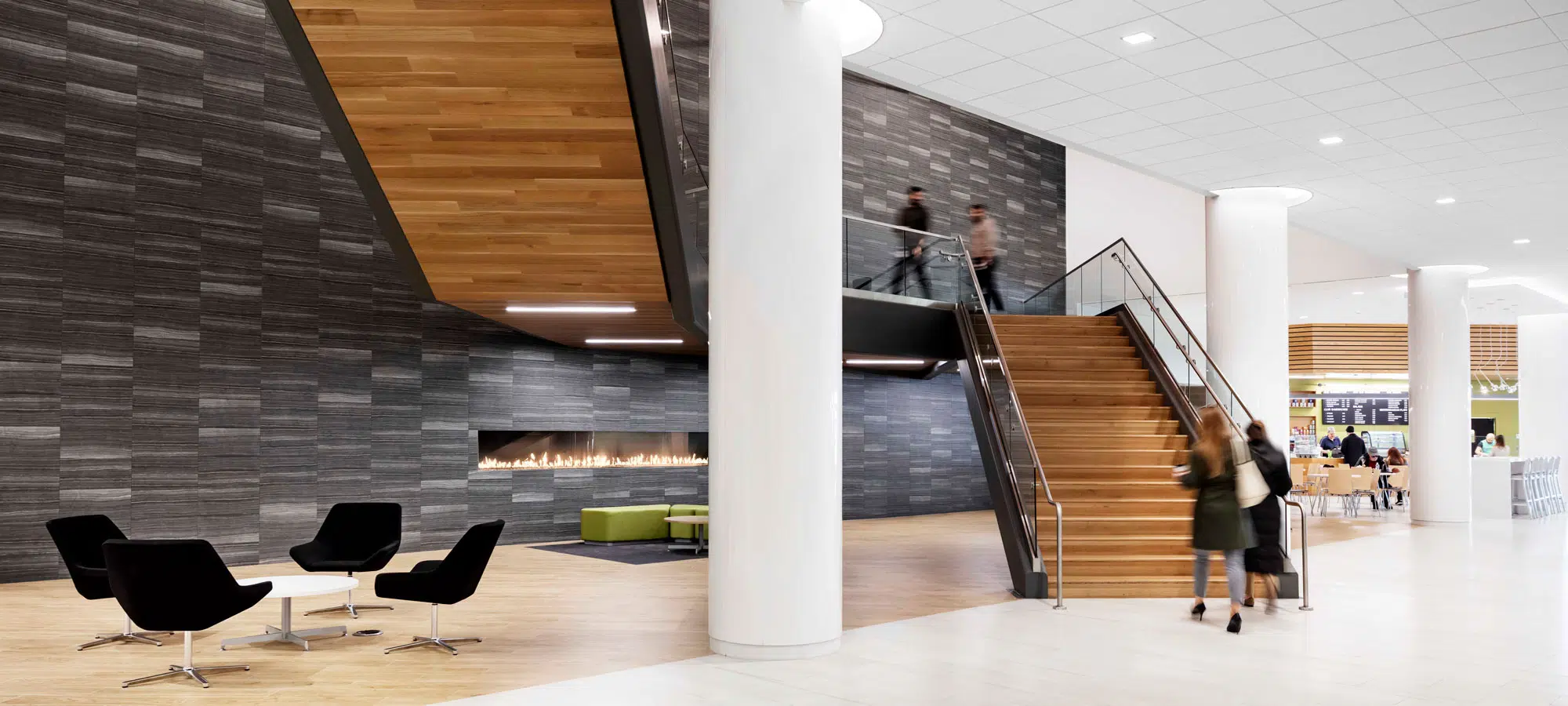
Mercantile Center is the premier mixed-use property in downtown Worcester. It consists of two office towers, 640,700 square feet of office and retail space and a 1,647-space parking garage.
Today, Mercantile Center is home to a UMass Memorial Healthcare office, the Worcester Telegram & Gazette, and other office and retail tenants. The Worcester Registry of Deeds recently signed a 10-year lease in Mercantile Center. In addition, The Mercantile, Ruth's Chris Steak House, and Harpoon Beer Garden have set up restaurants in Mercantile Center or plan to do so soon. Norton also indicated that he'd like to create a hotel and apartment building within Mercantile Center.
Mercantile Center is one of several CitySquare success stories in downtown Worcester. Others include:
St. Vincent Hospital Cancer & Wellness Center
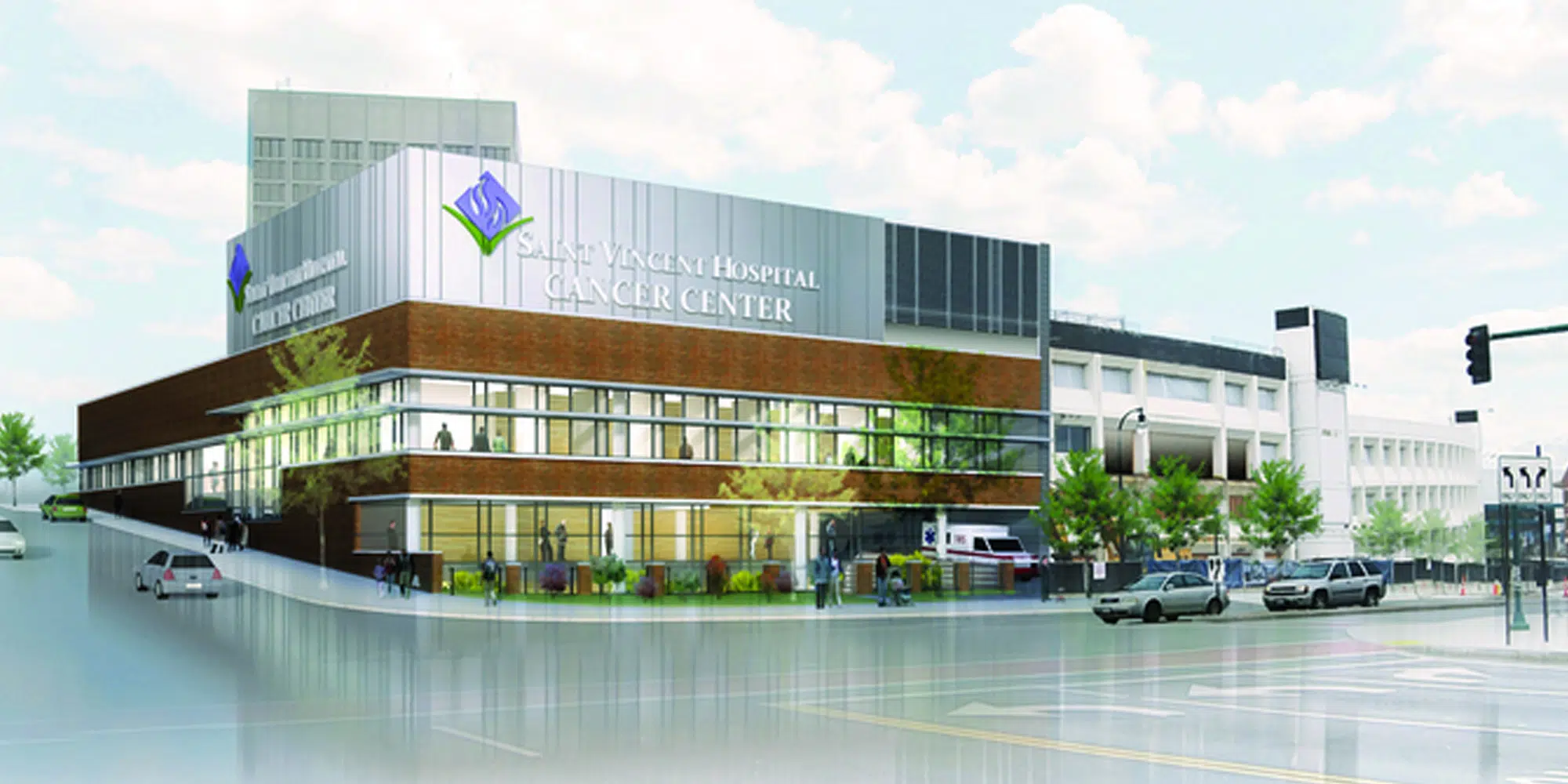
The $30 million center treats roughly 500 new cancer patients each year. It continues to explore renovation opportunities to ensure it can provide cancer patients with the best-possible care and support.
Worcester Common Garage
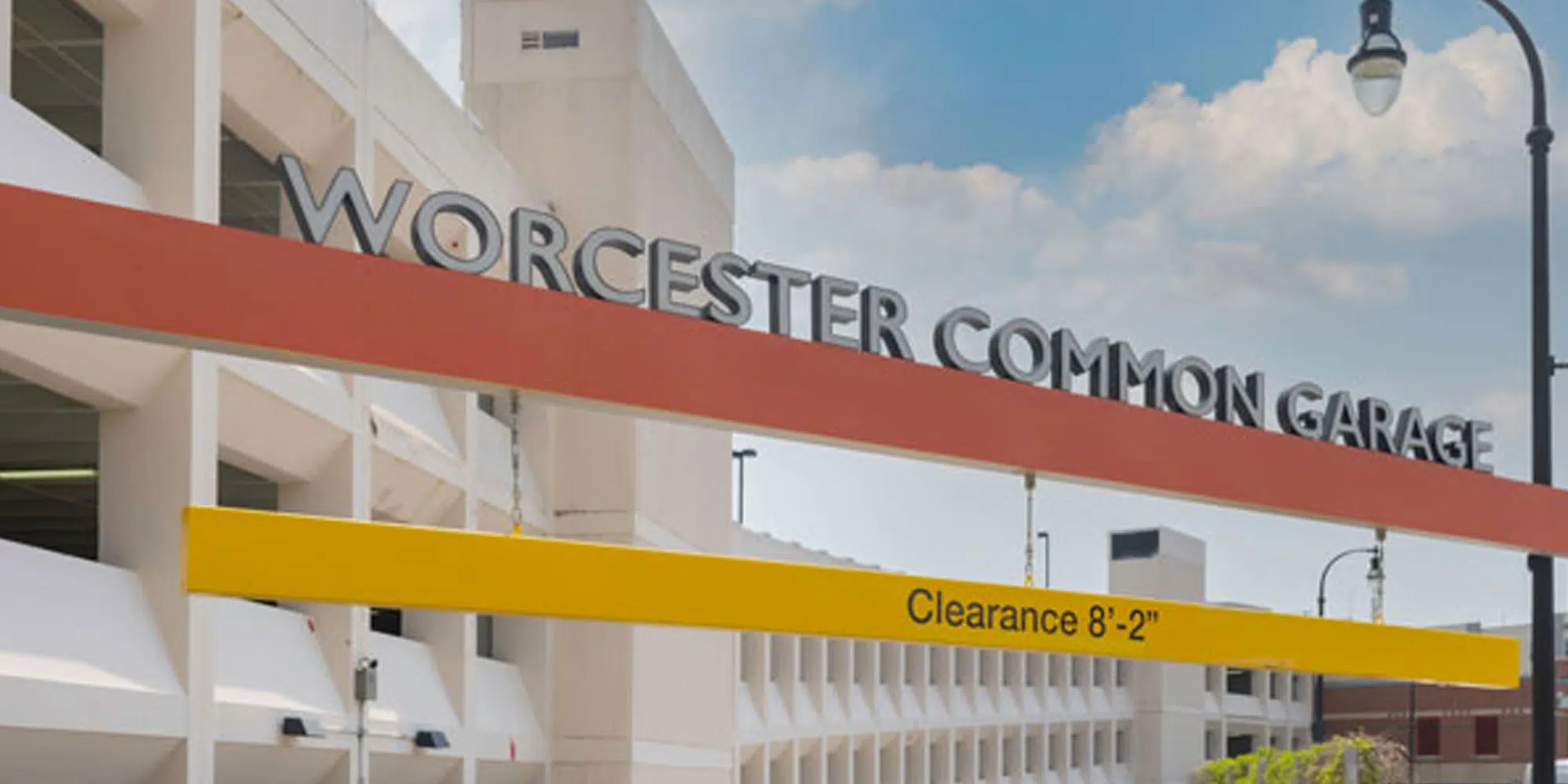
The Worcester Common Garage is an underground parking garage with 800 available spots and three entrances. It's a great spot for those who want to dine at a downtown restaurant, attend a WooSox game or enjoy other local events and activities.
AC Hotel by Marriott
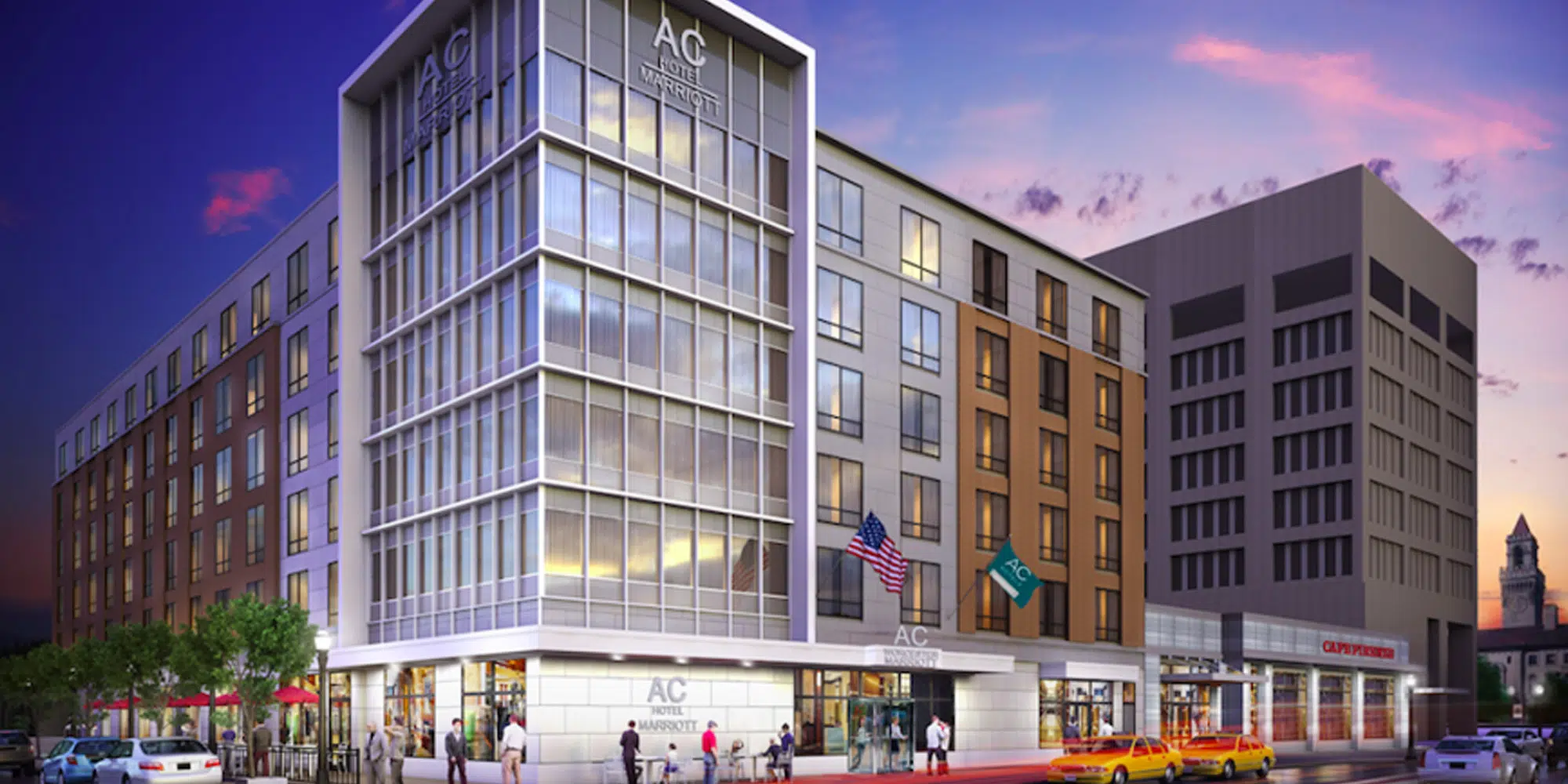
The AC Hotel by Marriott is a stylish, modern hotel in downtown Worcester. It's located only a few minutes from the DCU Center and Union Station.
145 Front Street Residential Development
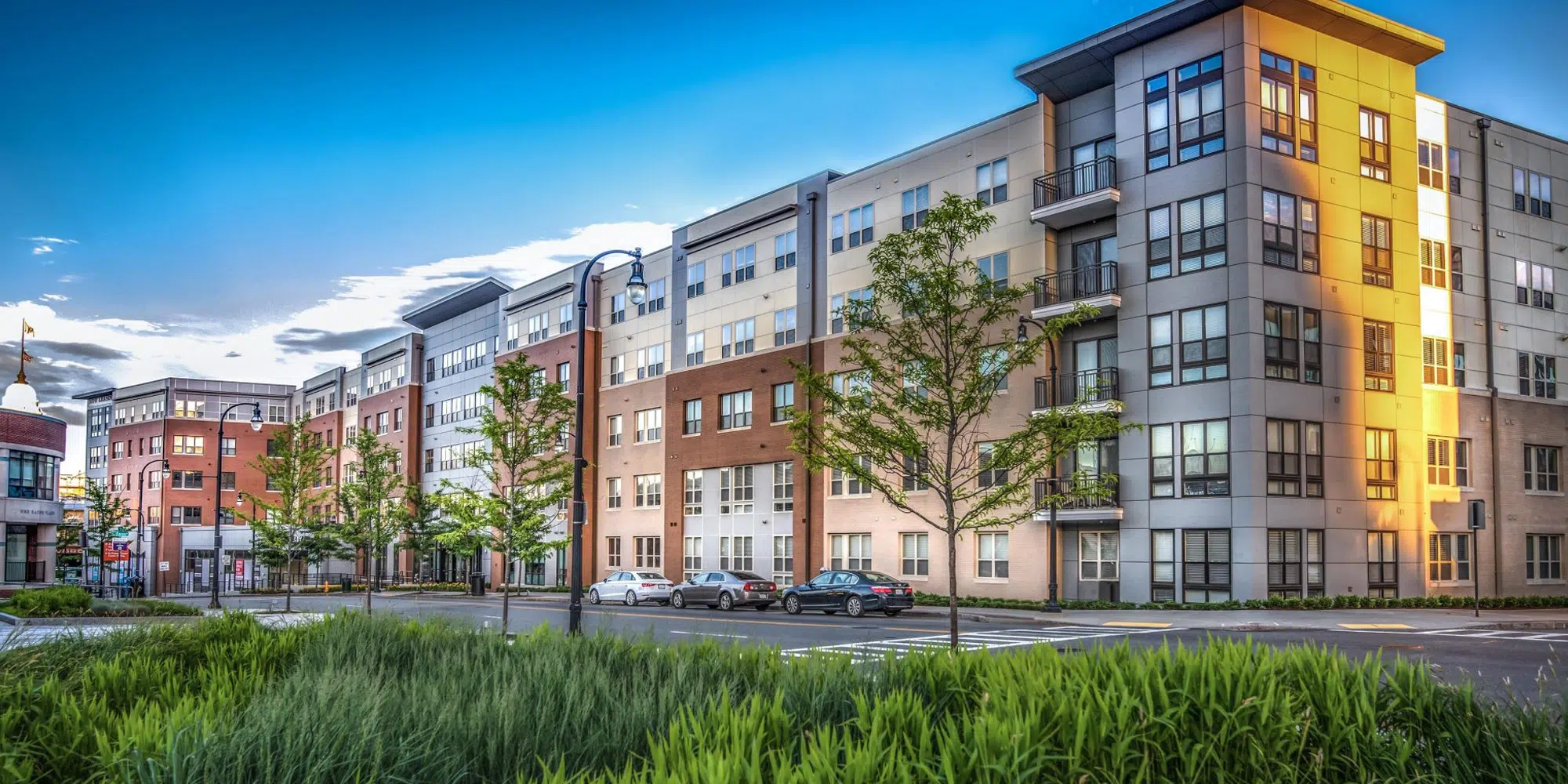
Roseland Residential Trust created the 145 Front Street apartment complex. The project cost $92 million and resulted in a downtown apartment community unlike any other. In fact, 99% of the 365 luxury apartments in the 145 Front Street building were rented within the first year.
The Unum Building
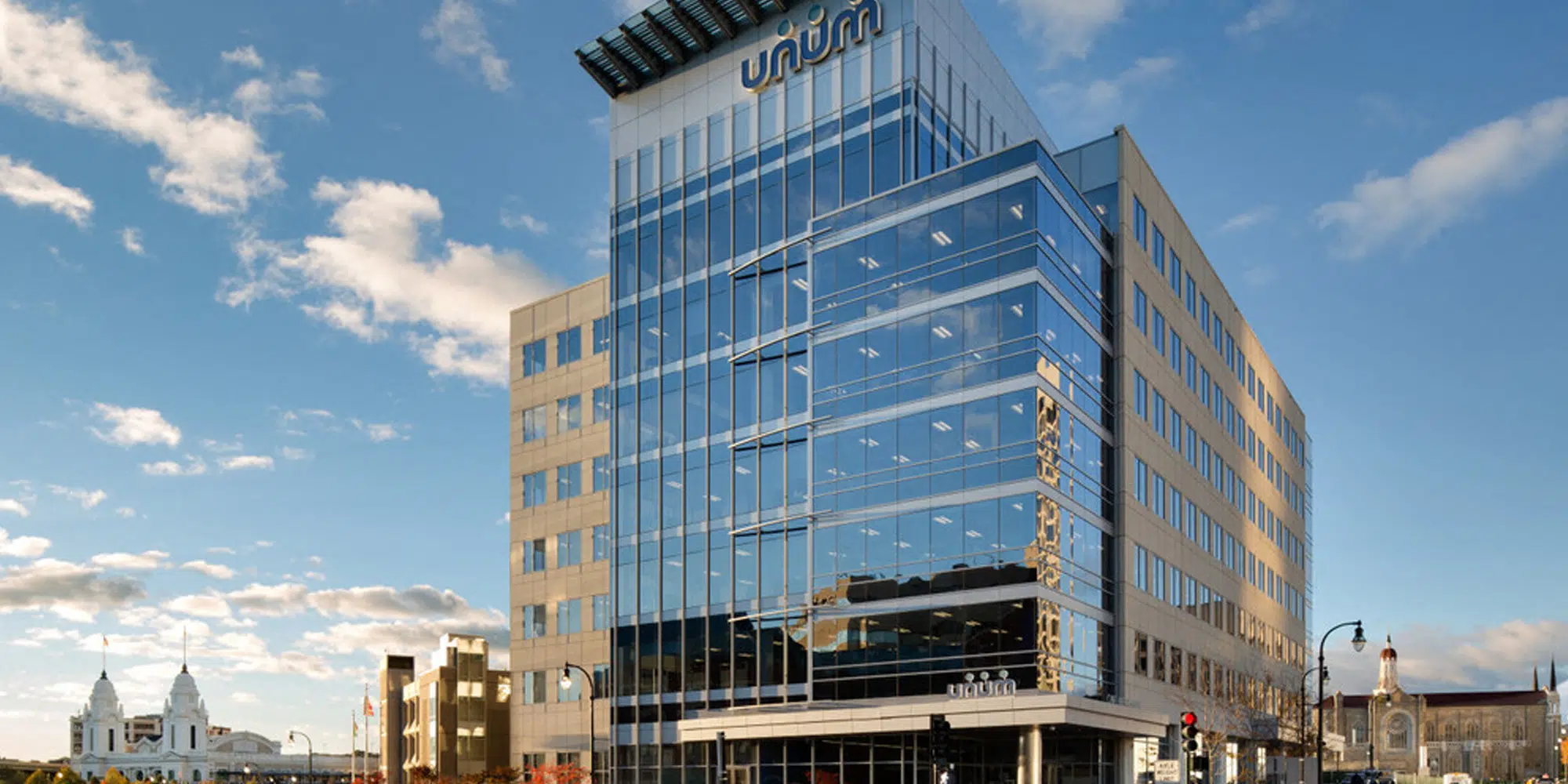
Unum invested $72 million and moved into this seven-story, 214,000-square-foot office building in 2013. Since that time, Norton and the Franklin Realty Advisors team have assumed property management, development, marketing and leasing activities of the Unum Building and rebranded it One Mercantile.
5 Salem Square & 1 CitySquare
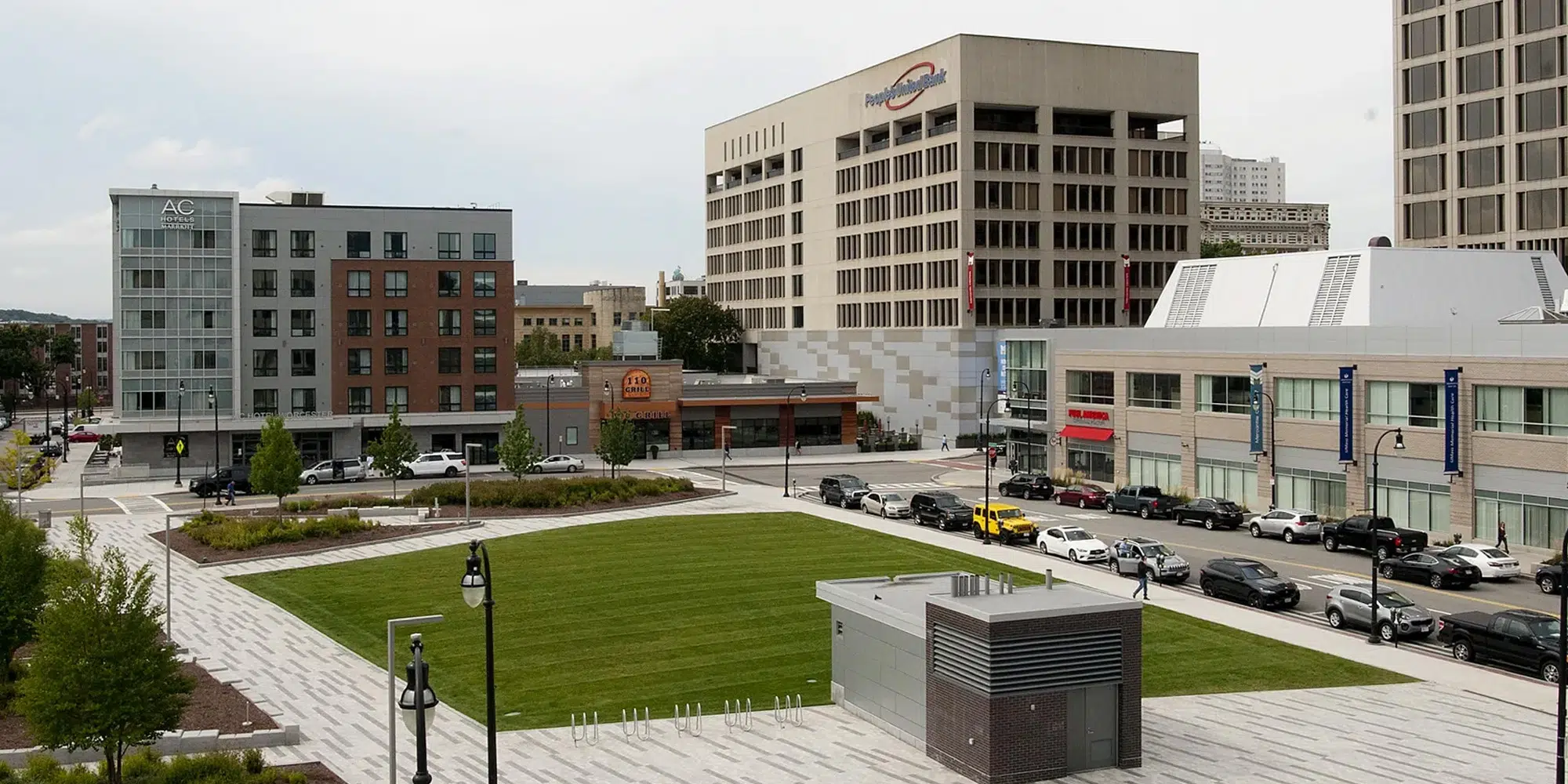
The final two vacant parcels of downtown Worcester's CitySquare development, 5 Salem Square and 1 CitySquare (the land above the underground parking lot, were sold for $5 million to Rhode Island residential developer Garfield Spencer. These parcels will be used for apartments.
The success of the CitySquare project is prompting developers and companies to pursue land and properties in these areas — and many have already kicked off projects or plan to do so soon.
CitySquare Development Has Helped Attract Other Developers to Downtown Worcester and Nearby Neighborhoods
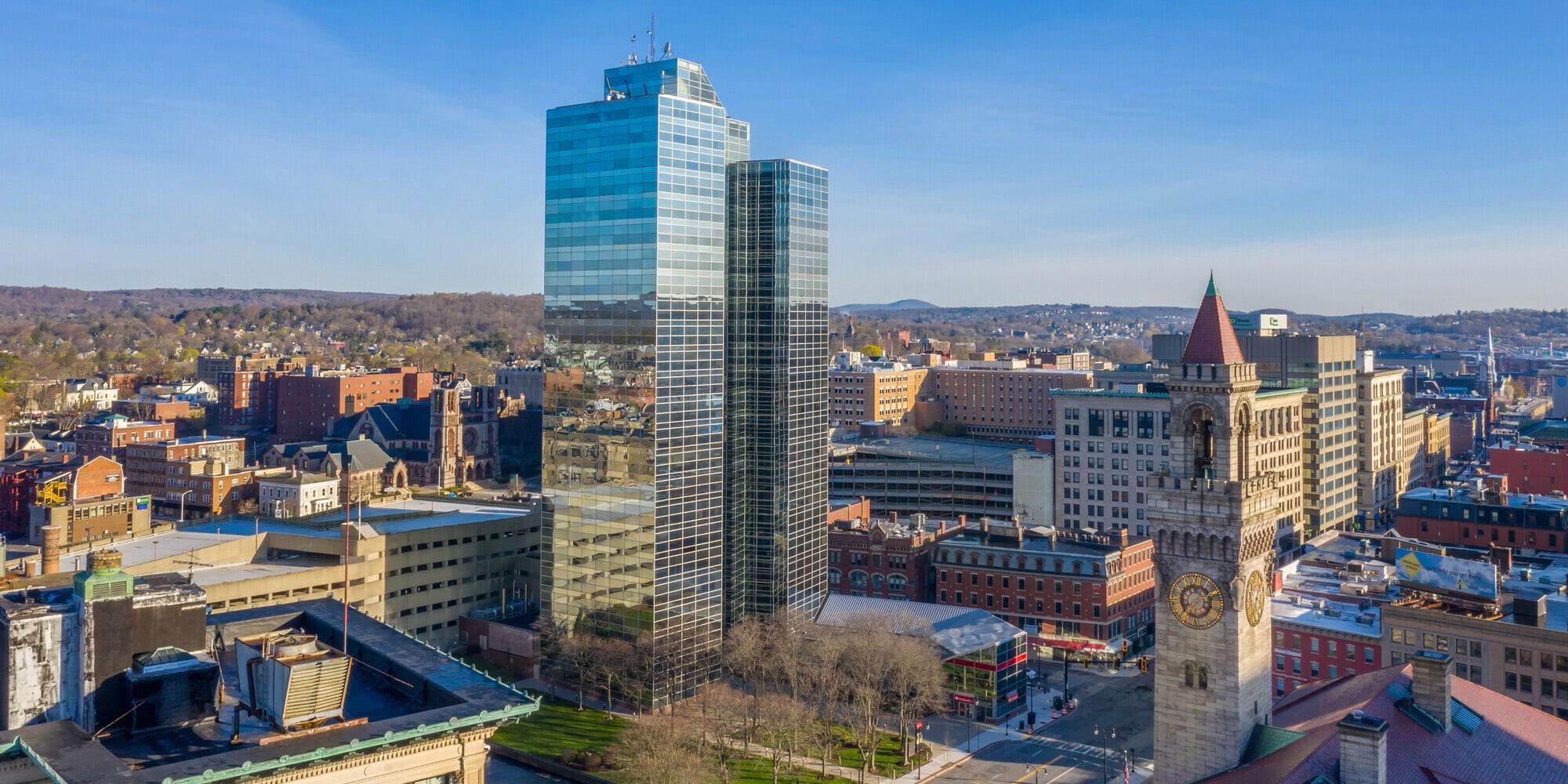
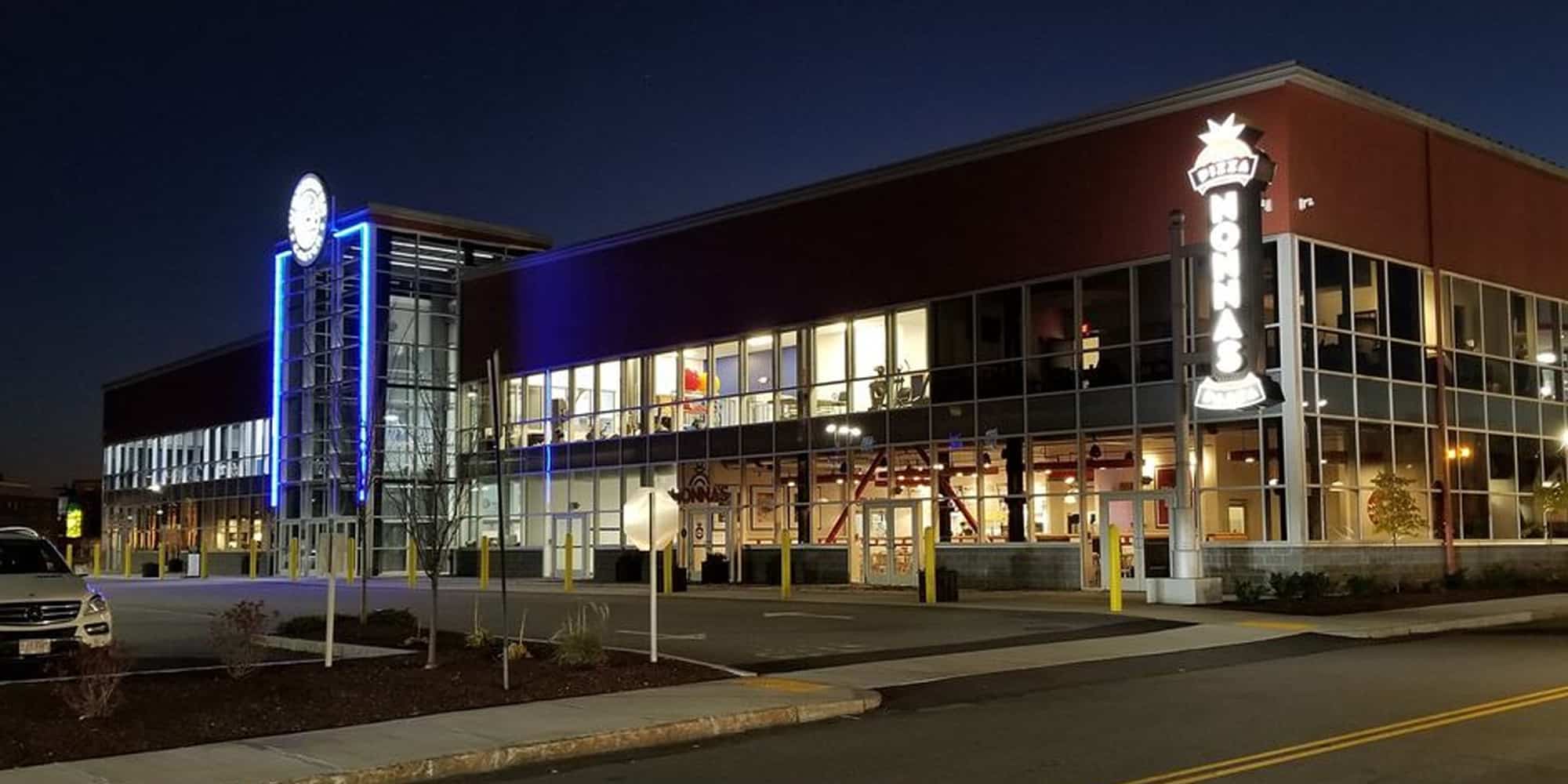
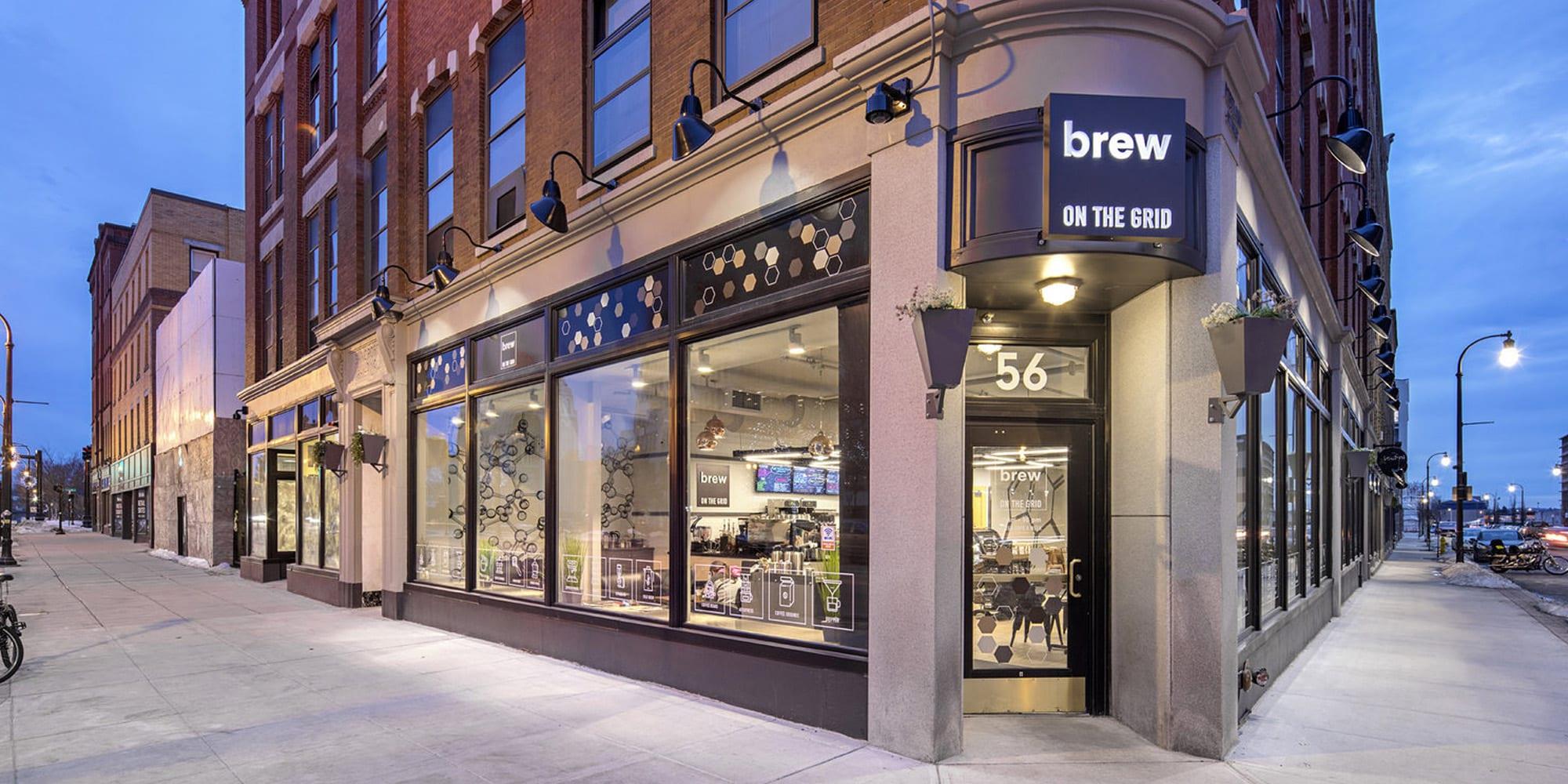
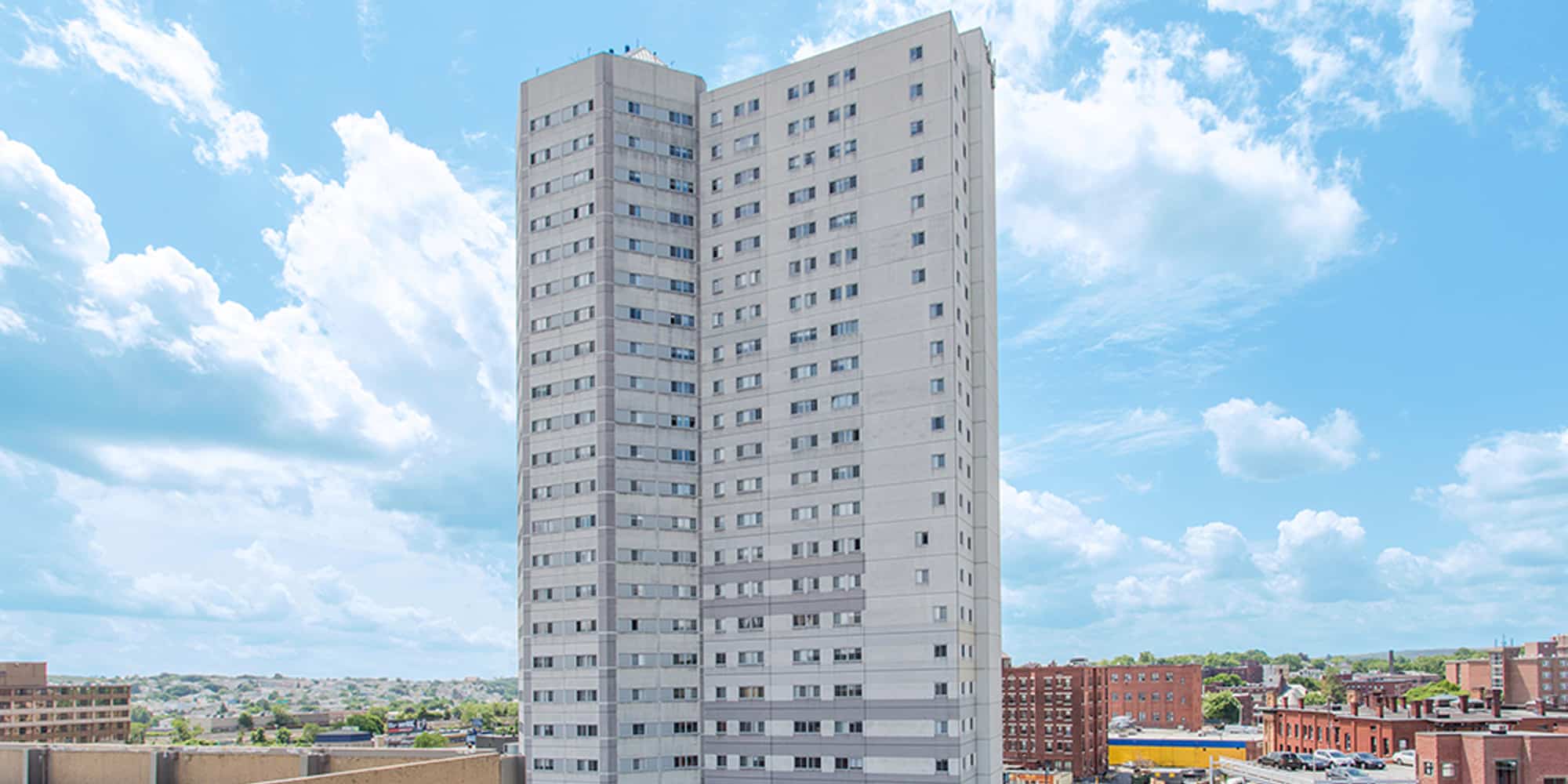
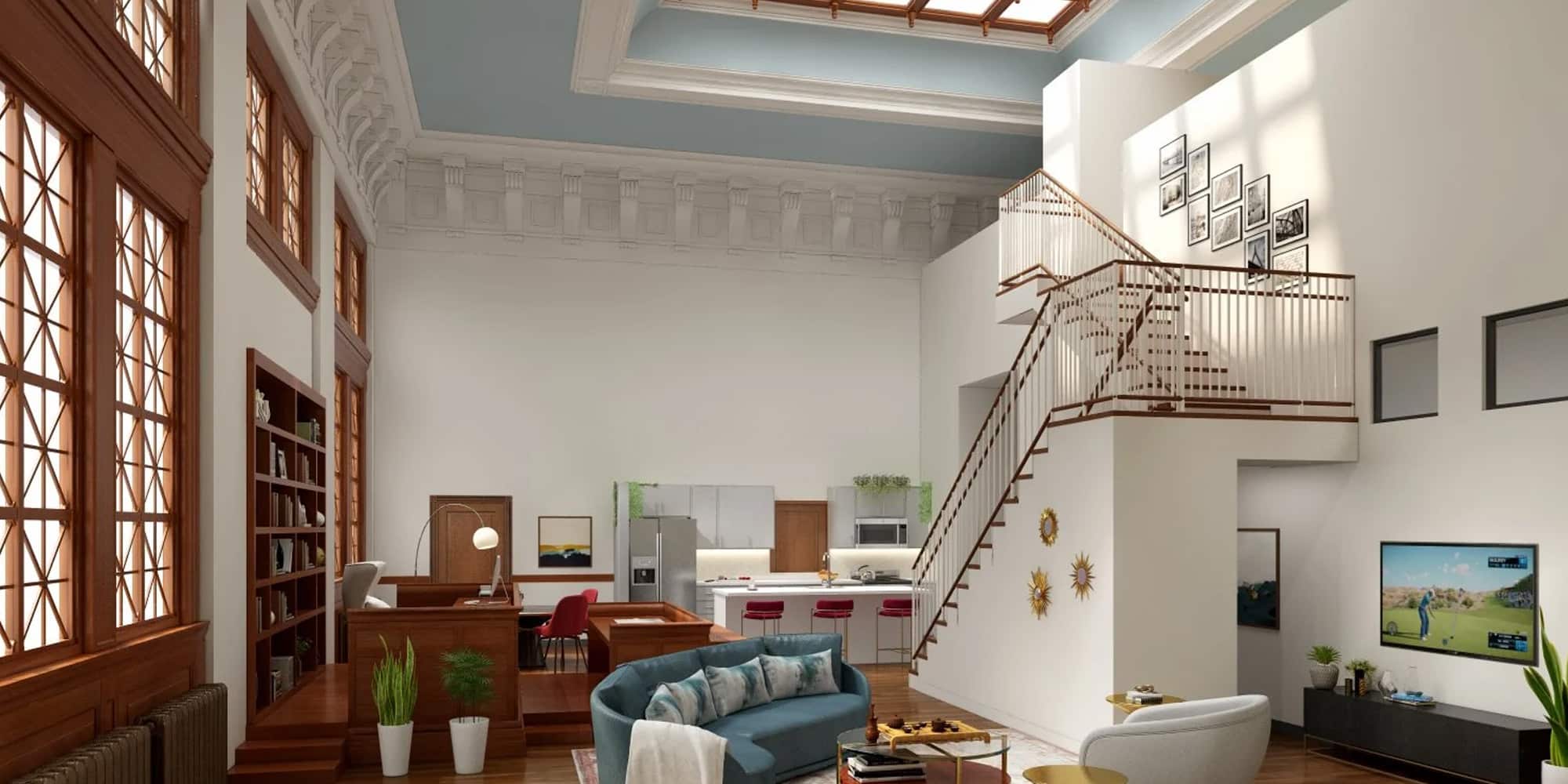
The success of the CitySquare project is prompting developers and companies to pursue land and properties throughout downtown Worcester and nearby neighborhoods. — and many have already kicked off projects or plan to do so soon.
- David Greaney's Boston-based Synergy Investments' development of 446 Main Street (Glass Tower)
- Cliff Rucker, who has invested in projects involving the Worcester Railers, Worcester Palladium, Worcester Ice Rink and 311 Main Street office building
- MG2 Group and The GRID properties, which has developed 475 residential units and 45,000 square feet of retail space, including the Beer Garden and Brew on the Grid
- Benedict Canyon Equities, which bought the 23-story Sky Mark Tower for $28.8 million
- Trinity Financial, which created the Courthouse Lofts and its 117 apartments
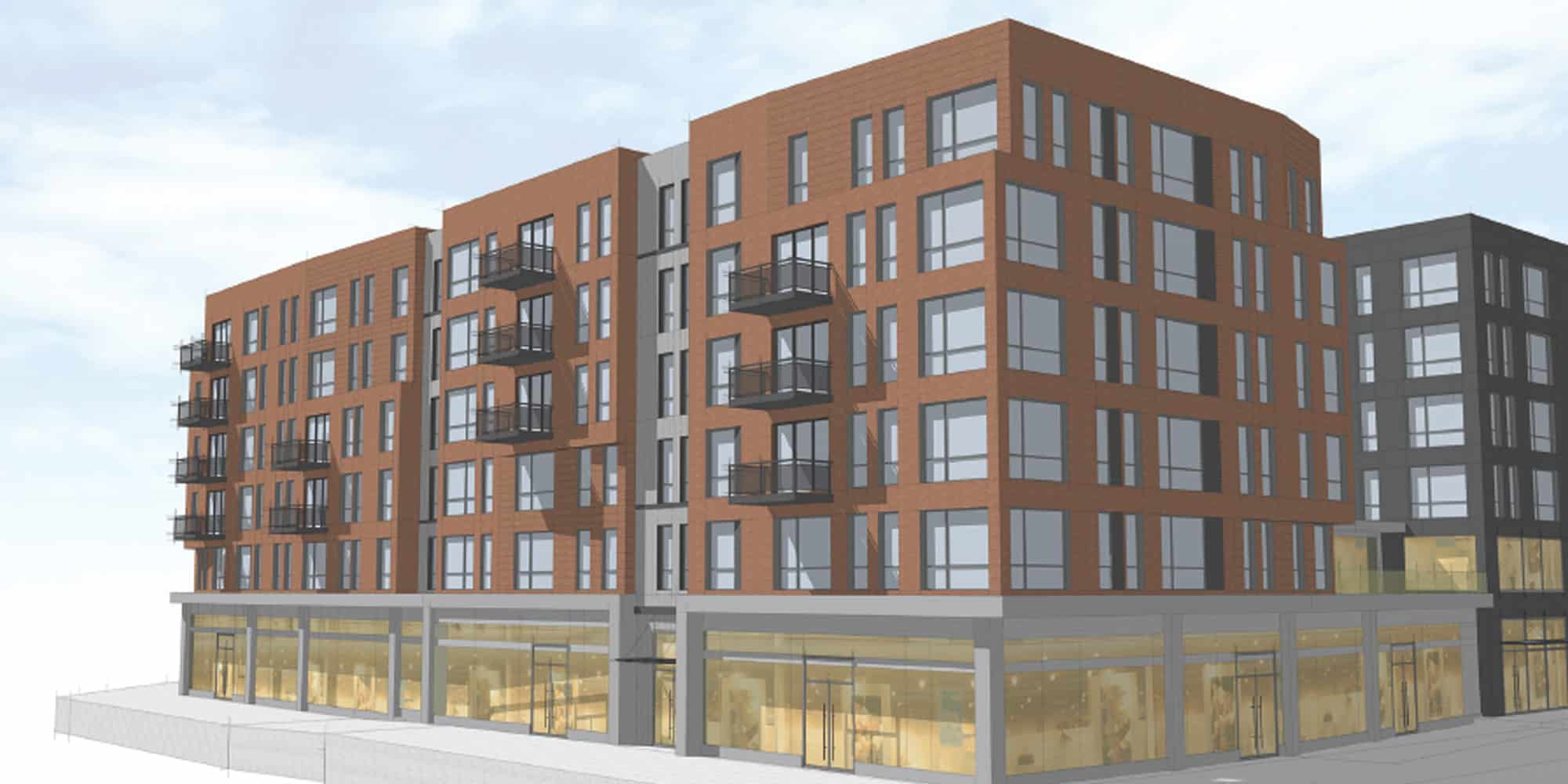
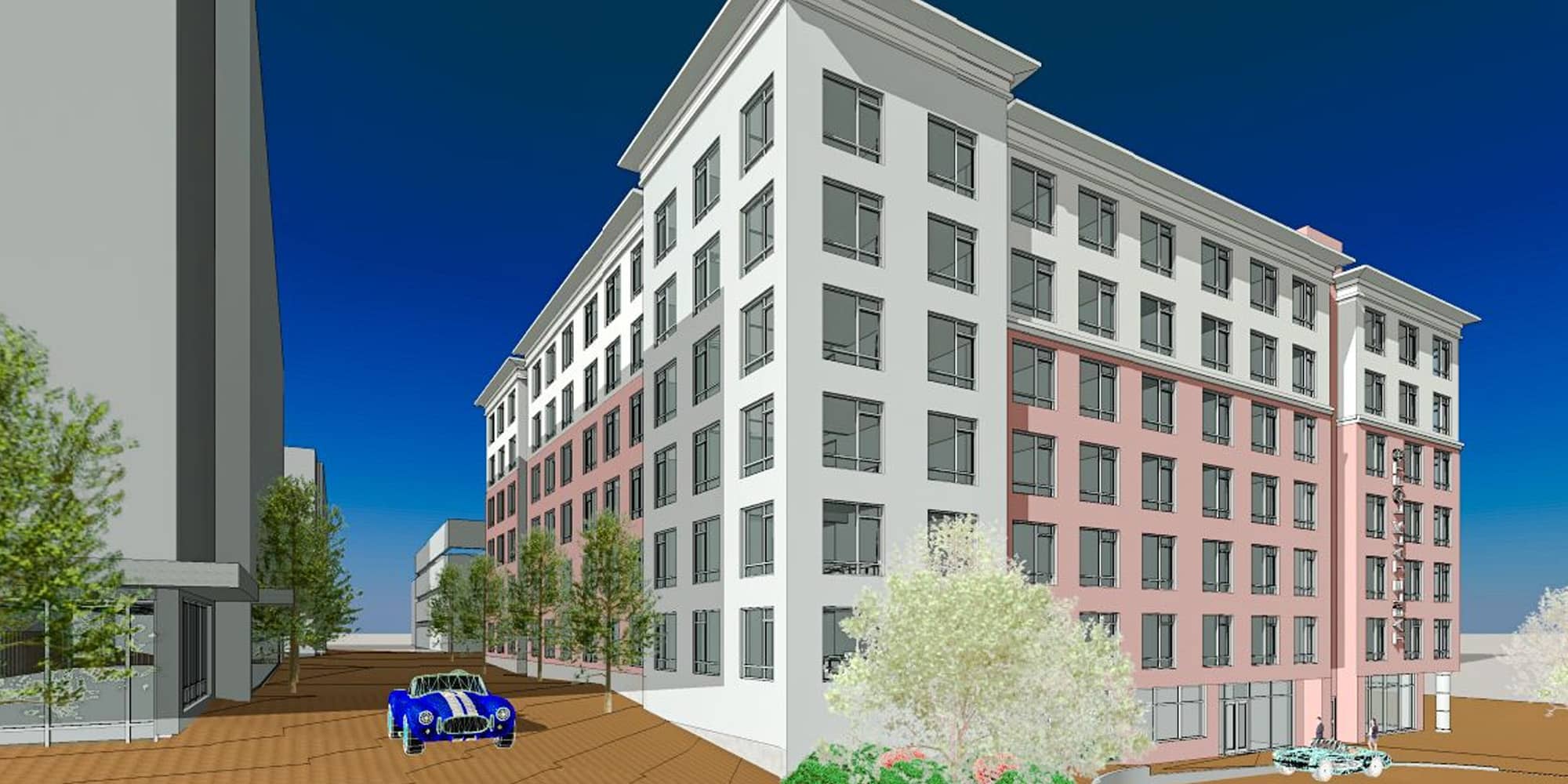
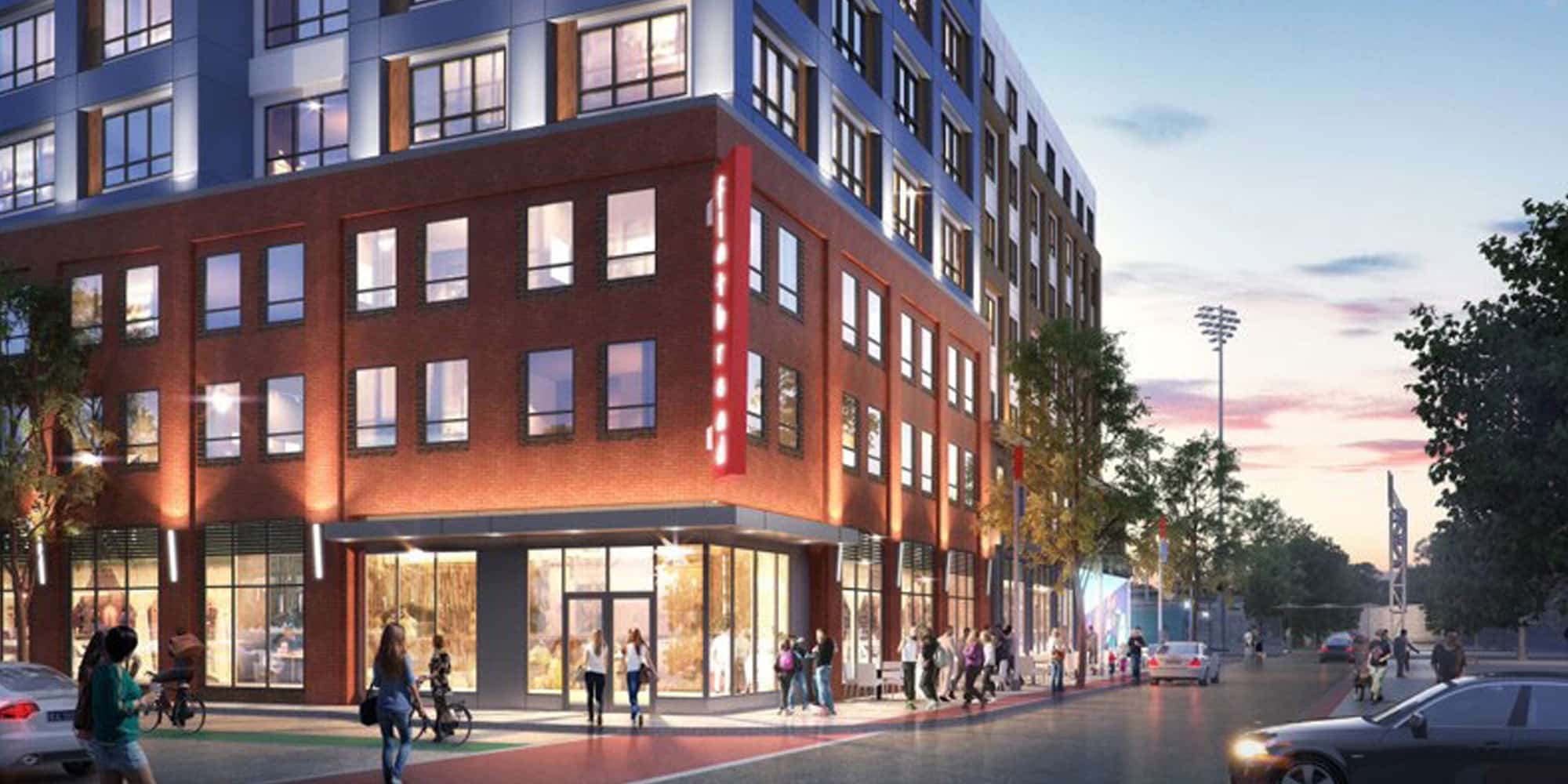
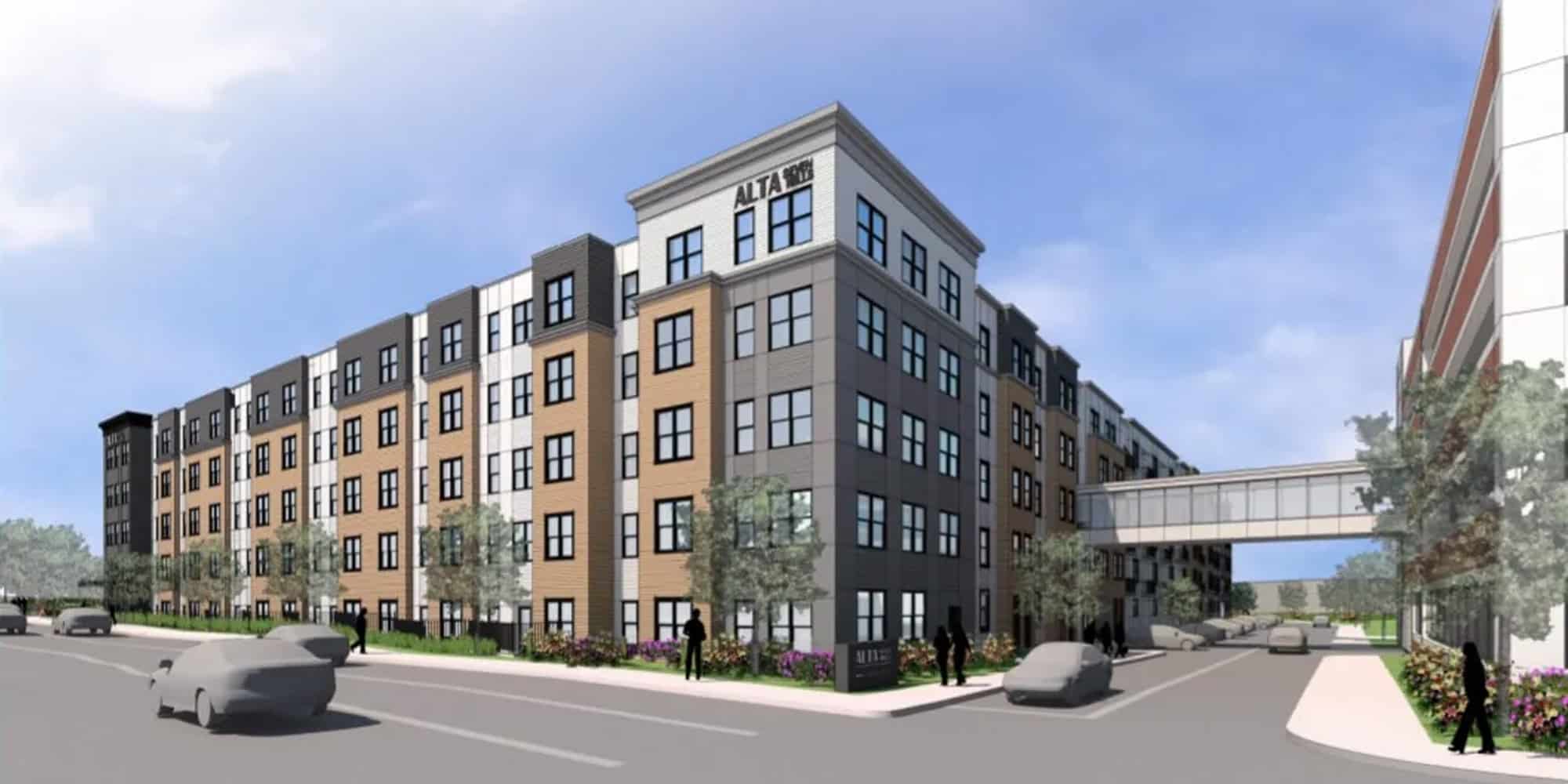
Several projects are in progress in the Canal District as well, including:
- South of Madison Apartments (SOMA): a seven-story, 228-unit apartment building with 18,000 square feet of retail space in construction being built by Madison Properties across the street from Polar Park.
- Table Talk Lofts: a 13,000 square foot, 77-unit apartment building in Kelley Square being developed by Boston Capital
- The Cove: a mixed-use development consisting of 172 market-rate units and 16,000 square feet of retail space on the first floor being developed by Churchill James LLC
And a short distance from CitySquare off Shrewsbury Street, Wood Partners' has begun construction of Alta on the Row, a $100 million development and 371 luxury apartments at 22 Mulberry Street (the site of the former Mount Carmel Church).
Looking Ahead: Attracting Retail to Downtown Worcester
With hundreds of apartment units scheduled to be built in the next few years, it's easy to imagine that the next wave of development in downtown Worcester will be more retail- and services-oriented. Picture a Trader Joe’s or Whole Foods in the mix. Where things get interesting retail-wise is when fashion and specialty shopping return to downtown Worcester. Picture a small-format Target, TJ Maxx, or H&M store opening on Main Street. It’s not that crazy of an idea. Walkable urban retail is fast-growing in the U.S. (Malls are not). And Worcester is primed to take advantage of this trend.
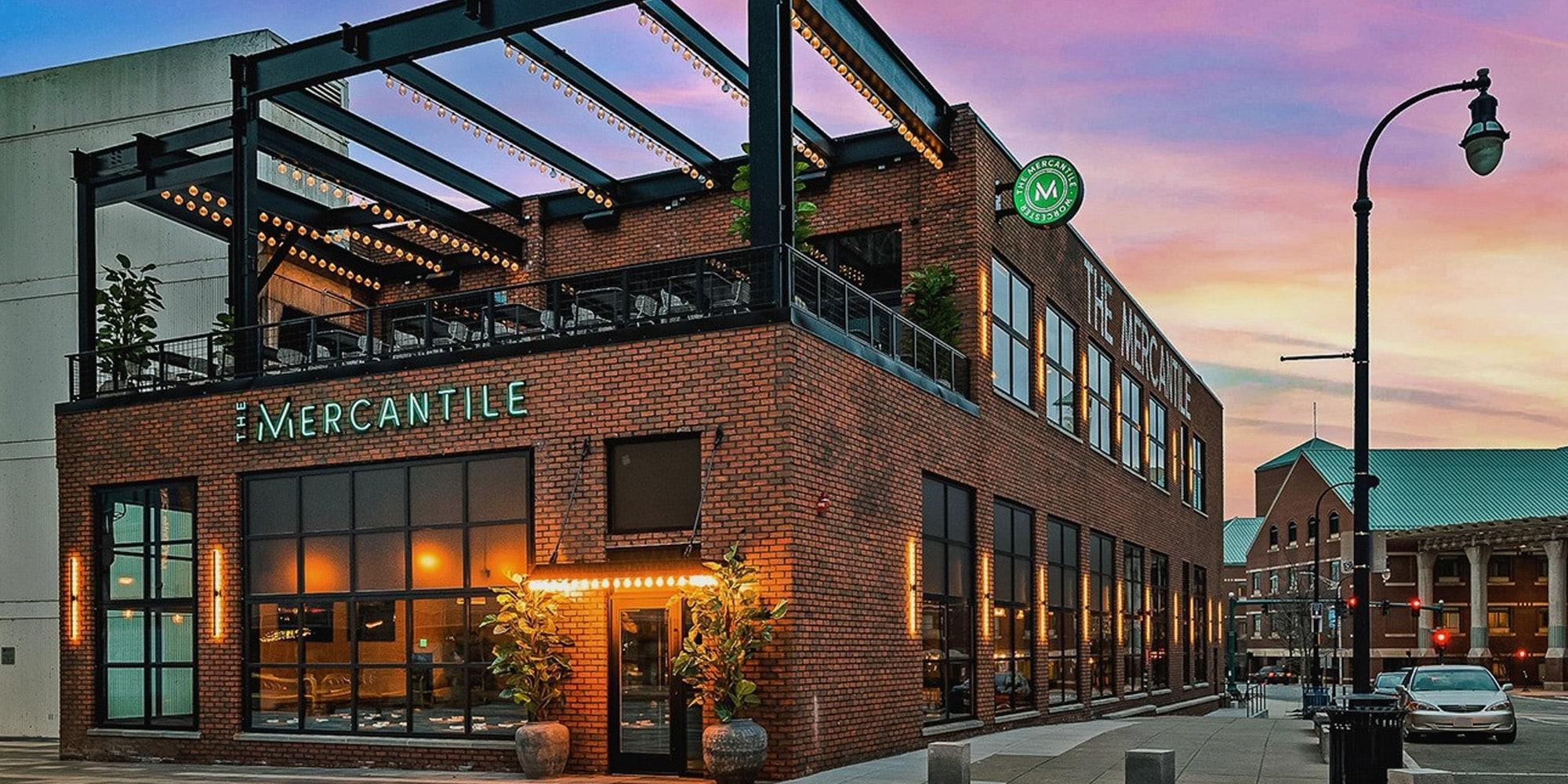
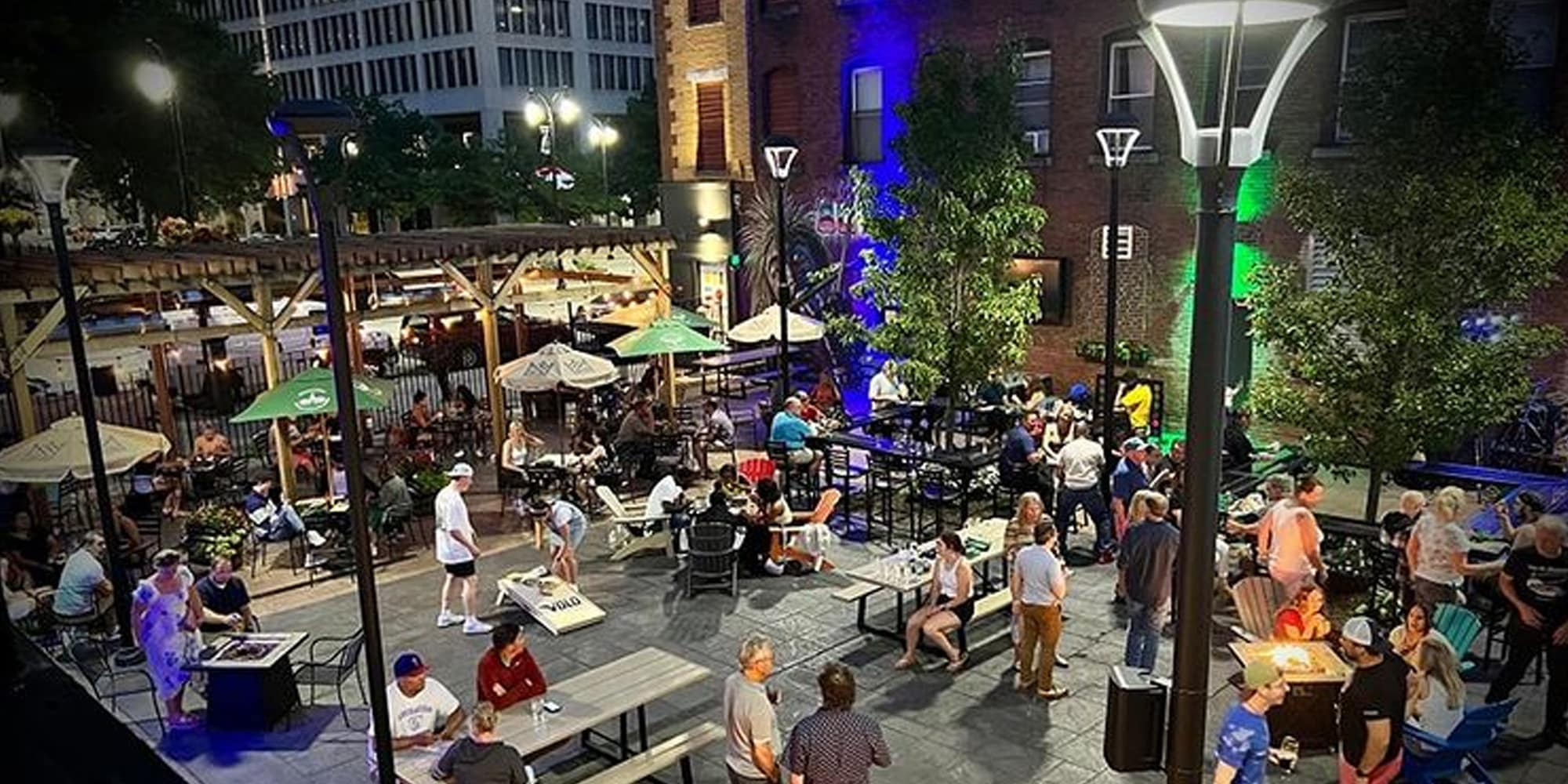
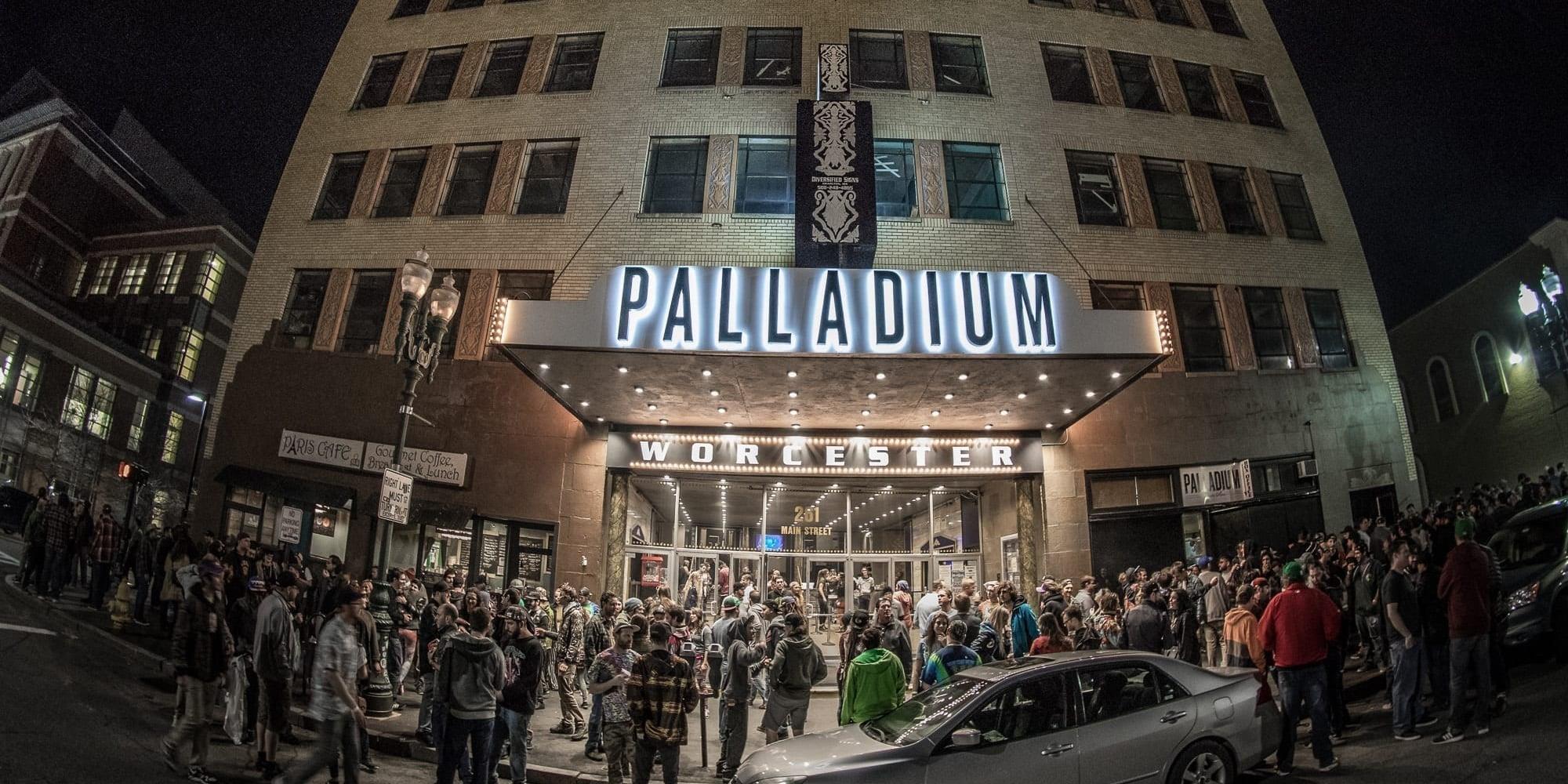
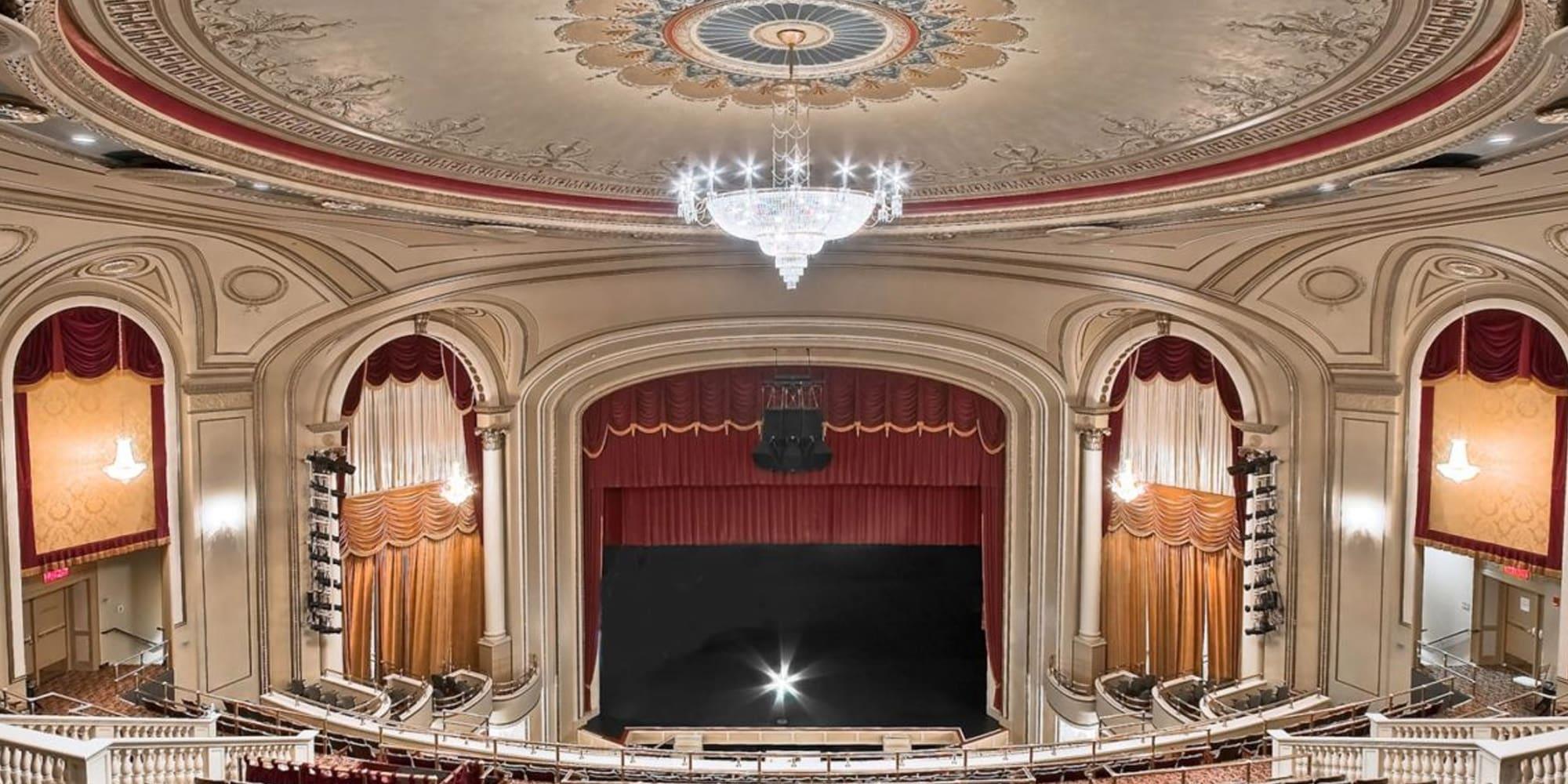
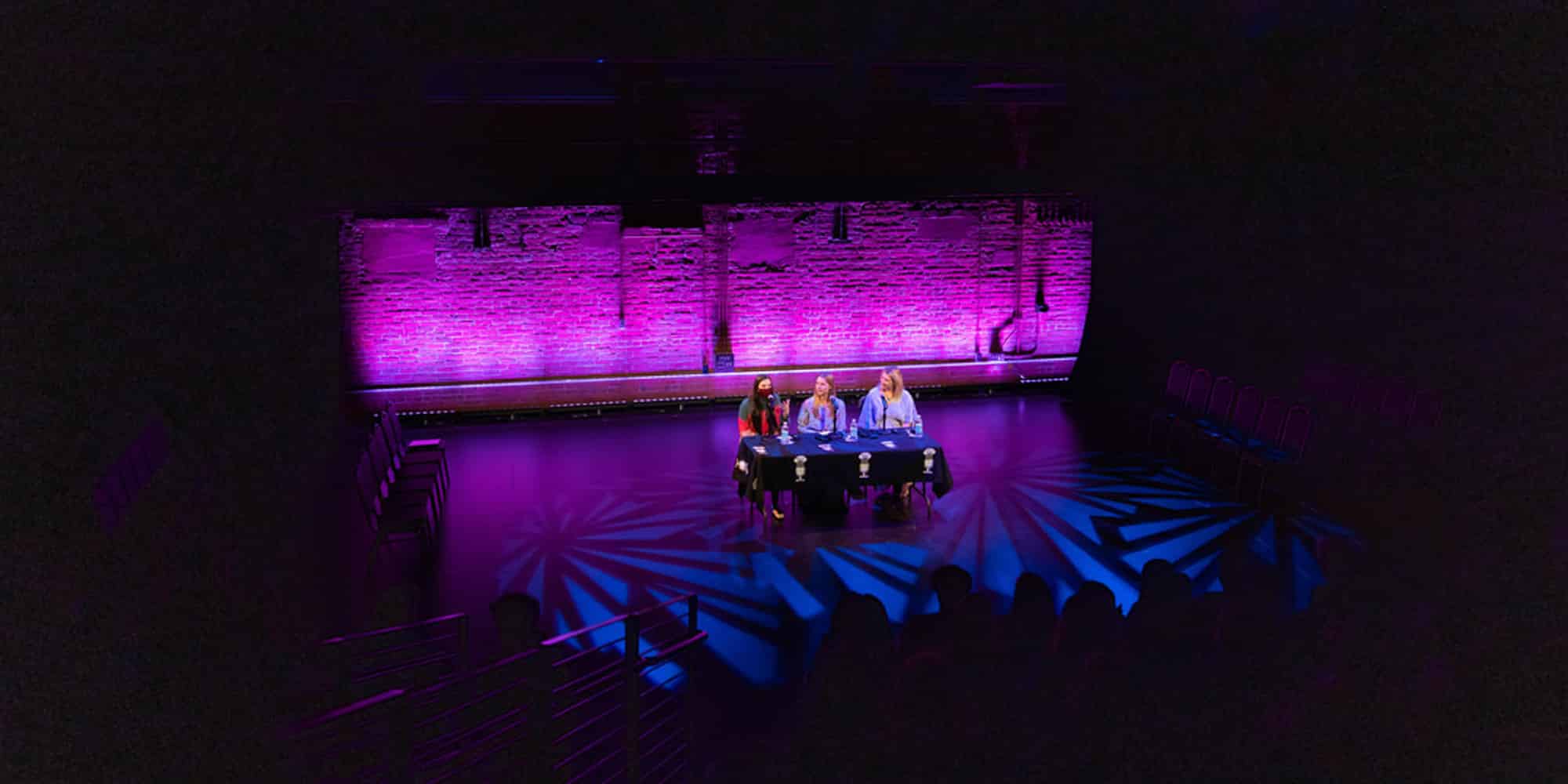
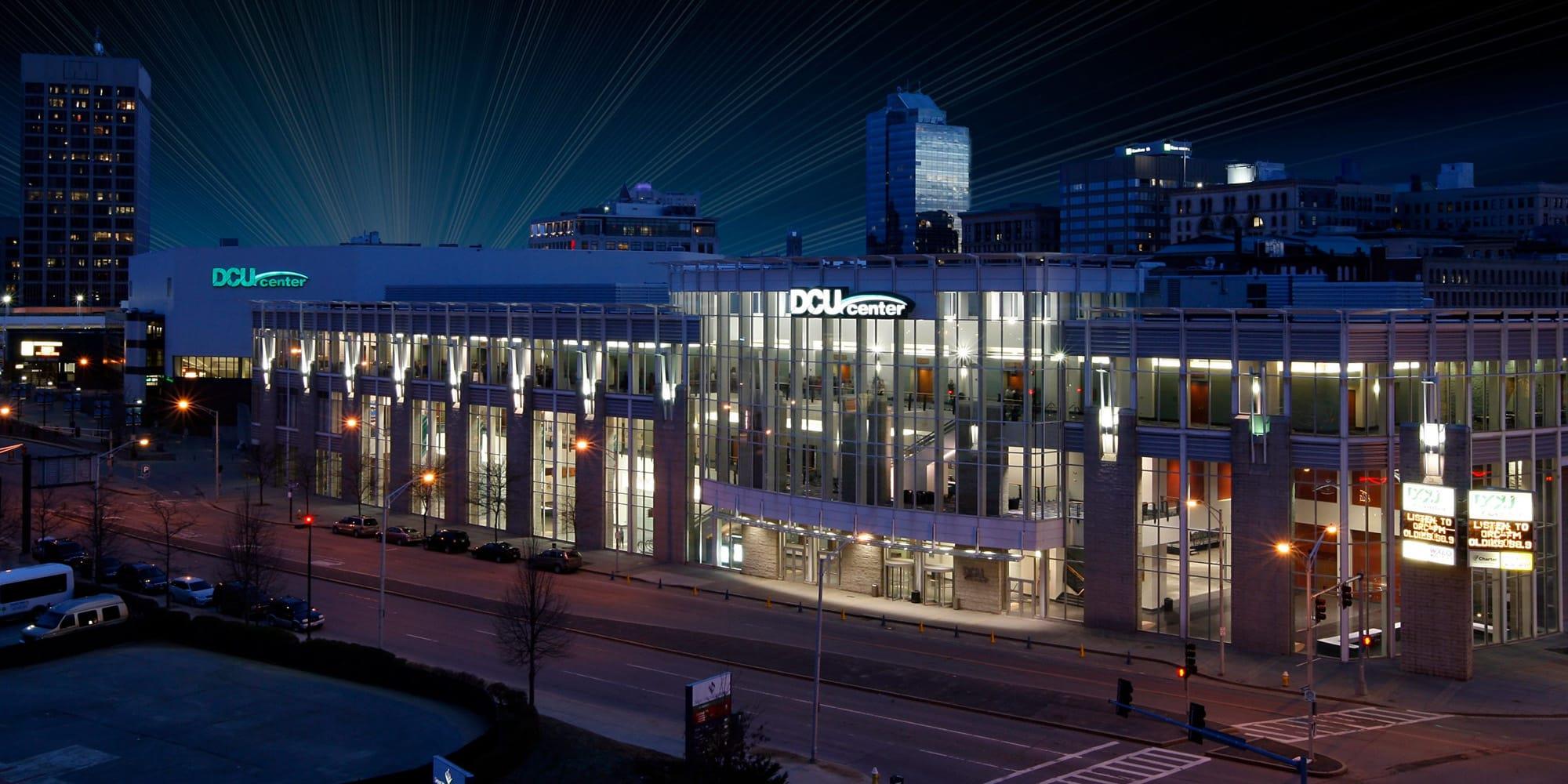
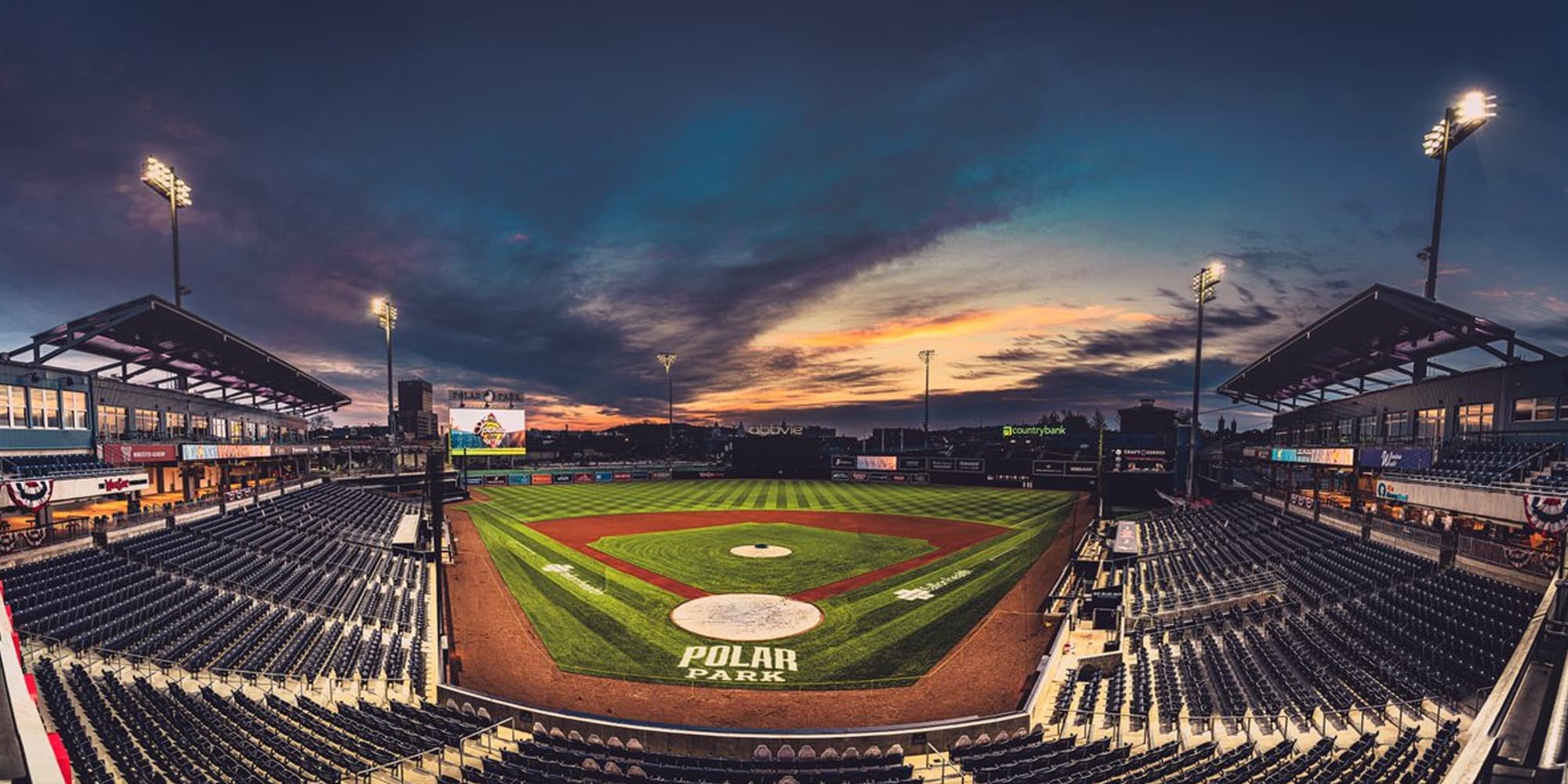
We have all the right ingredients in place, including:
- Restaurants: Many restaurants are thriving in downtown Worcester (like The Mercantile, Worcester Beer Garden, Armsby Abbey, and Deadhorse Hill). There are also many restaurants scheduled to open in downtown Worcester this summer (including Ruth's Chris steak house and Harpoon Brewery).
- Music Scene: Musicians from all over the world are performing at downtown music venues like the DCU Center, Hanover Theatre, and Worcester Palladium.
- Theater Scene: The Hanover Theatre and BrickBox ensure guests can visit downtown Worcester to watch a play, comedy show, or other live performances year-round.
- Sports Activities: The DCU Center, Polar Park, and Worcester Ice Center bring live sports entertainment to downtown Worcester at a fraction of the cost of going into Boston.
There’s so much happening downtown. Young professional living in upscale market-rate apartments. National chains and regional operators opening new restaurants. Off-Broadway theatre, Triple A baseball and minor league hockey. When downtown Worcester adds retail in the mix... and becomes a walkable urban shopping destination... you have all the ingredients needed for it to become a thriving 18-hour city. That’s where Worcester is heading.
Then What? Attracting New Companies to Move to Downtown Worcester
Worcester is already the fastest growing city in New England. Its population grew 14.1% between 2010 and 2020, from 181,045 to 206,518 residents. Having a vibrant downtown business district will only make the City of Worcester more attractive – especially to Metro Boston companies considering relocation.
To date, downtown Worcester has attracted Greater Boston area companies looking to expand by opening satellite office from Boston, including:
- WGBH
- Blum Shapiro (accounting firm)
- Tighe & Bond (engineering firm)
- Feldman (land surveyors)
Recently, two tech firms moved their headquarters to the former Unum building at 1 Mercantile Center. ComputerVault, a computer software firm specializing in cybersecurity relocated from Marlboro, And Xceedance, a fintech firm with offices in London, Poland, Liechtenstein and Australia, moved its global headquarters from Boston.
The hope is for other tech companies or businesses in life sciences, financial services, or other industries soon to do the same. Let’s dream a bit. Picture companies like MathWorks, Moderna, Berkshire Bank moving a large part of their operations to downtown Worcester. The Worcester skyline would be very different.
It can happen one day. And when it does, we’ll have the amazing public-private development called CitySquare to thank for Worcester’s remarkable transformation.
###
